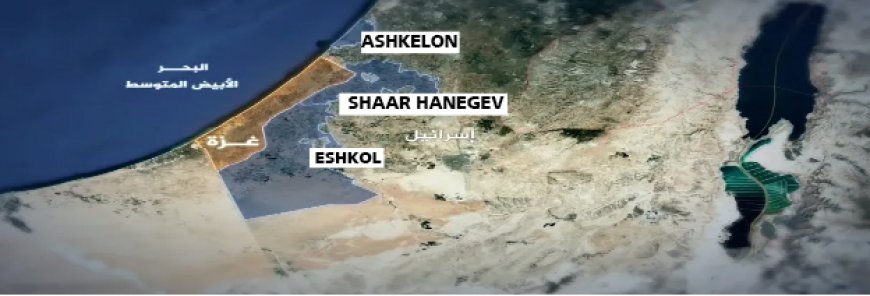The Shifting Corridors: Operation Al-Aqsa Storm and the Collapse of Western Energy Strategies in the Middle East

The ongoing Israeli war on Gaza has not only reshaped the geopolitical landscape of the Middle East but has also irrevocably altered the balance of power, exposing the vulnerabilities of Western strategies and ushering in a new era of Iran-led Axis of Resistance-driven dynamics. The conflict has shattered the illusion of Western dominance, revealing the fragility of their meticulously crafted plans for regional control.
Prior to the eruption of Operation Al-Aqsa Storm, Western governments, led by the United States, had embarked on an ambitious project to construct parallel transportation corridors, a strategic move intended to circumvent the Chinese "One Belt, One Road Initiative" (BRI) and assert their influence in the region. These corridors, envisioned as arteries of commerce and strategic dominance, were designed to bypass the strategic geography of Iran and extend into the occupied territories, underscoring the pivotal role that Israel plays in the global "war of the corridors."
However, the post-conflict landscape of 2023 has proven vastly different from Western designers' expectations. The removal of the India-Middle East-Europe Economic Corridor (IMEEC) from the analysis circuit, a plan actively pursued by the United States and its allies, marked a significant setback for the Western front. This action effectively neutralized a dangerous scheme aimed at strategically diminishing the influence of the Persian Gulf and the Strait of Hormuz while simultaneously seeking to bolster the security of the Israeli regime through the economic annexation of the occupied Palestinian territories.
The Axis of Resistance, in a strategic maneuver of unprecedented audacity, has dealt a devastating blow to the Israeli regime and its Western supporters. Their unexpected move to disrupt maritime trade through the Suez Canal, a vital artery for the Israeli regime's shipping operations, has crippled Israeli trade, leaving its port of Eilat bereft of goods and fueling a troubling trend of inflation within the occupied territories. The Israeli regime's foreign trade crisis has sent a clear message to the Western governments: in the looming conflict, the security of communication channels is a vital strategic consideration, and nations unable to defend the safety of their maritime trade are destined for failure.
In the aftermath of Operation Al-Aqsa Storm, Israel's energy suppliers have come under intense scrutiny. Certain Islamic, Arab, and African regimes were accused of secretly providing energy resources to Israel, drawing the ire of public opinion and facing unprecedented diplomatic warnings. Egypt, situated in the regime's immediate vicinity, was among the countries implicated in these allegations, while the Republic of Azerbaijan and Turkey were also accused of participating in this clandestine energy transfer.
Meanwhile, the Muslim peoples of these nations exerted huge pressure on their respective governments, demanding an immediate cessation of energy supplies to Israel in the wake of the appalling atrocities committed in the Gaza Strip. The goal was to ensure that these countries would not be complicit in aiding the Israeli regime through such energy transfers.
Although the process of energy transfers to the regime may not have been entirely halted, the groundswell of public opinion and pressure from the Muslim populace within the region delivered a resounding blow to the plans for normalizing relations between Arab and Islamic nations with the Israeli regime.
In conclusion, the domino effect triggered by Operation Al-Aqsa Storm has disrupted many of the Western countries' strategies within the Middle Eastern theater. The Western Front's corridor plans, designed to circumvent Iran and exert pressure on China, have been decisively thwarted. The present era is marked by a thirst for a new, resistance-oriented blueprint in the post-ceasefire landscape of Gaza. The Israeli regime will never be able to stabilize its chaotic situation, as the Axis of Resistance has once again dismantled the medium-term plans of the Western governments in the wake of Operation Al-Aqsa Storm.
The conflict in Gaza has served as a stark reminder of the shifting sands of power in the Middle East. The West's grip on the region is weakening, replaced by a new era of resistance-driven dynamics where strategic autonomy and regional solidarity are paramount. The Israeli regime, facing internal turmoil and external pressures, will find it increasingly difficult to maintain its precarious stability. The era of Western dominance in the Middle East is fading, replaced by a new era of resistance-driven dynamics where strategic autonomy and regional solidarity are paramount.













































